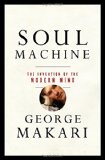new book – ‘A Survival Guide to the Misinformation Age: Scientific Habits of Mind’ by David J. Helfand
February 3, 2016
(NOTE: As an Amazon Associate I earn from qualifying purchases.)
A Survival Guide to the Misinformation Age: Scientific Habits of Mind by David J. Helfand (Columbia University Press, 2016)
(kindle ed.), (amazon.co.uk), (UK kindle ed.)
Book description from the publisher:
We live in the Information Age, with billions of bytes of data just two swipes away. Yet how much of this is mis- or even disinformation? A lot of it is, and your search engine can’t tell the difference. As a result, an avalanche of misinformation threatens to overwhelm the discourse we so desperately need to address complex social problems such as climate change, the food and water crises, biodiversity collapse, and emerging threats to public health. This book provides an inoculation against the misinformation epidemic by cultivating scientific habits of mind. Anyone can do it?indeed, everyone must do it if our species is to survive on this crowded and finite planet.
This survival guide supplies an essential set of apps for the prefrontal cortex while making science both accessible and entertaining. It will dissolve your fear of numbers, demystify graphs, and elucidate the key concepts of probability, all while celebrating the precise use of language and logic. David Helfand, one of our nation’s leading astronomers and science educators, has taught scientific habits of mind to generations in the classroom, where he continues to wage a provocative battle against sloppy thinking and the encroachment of misinformation.
Google Books preview:







